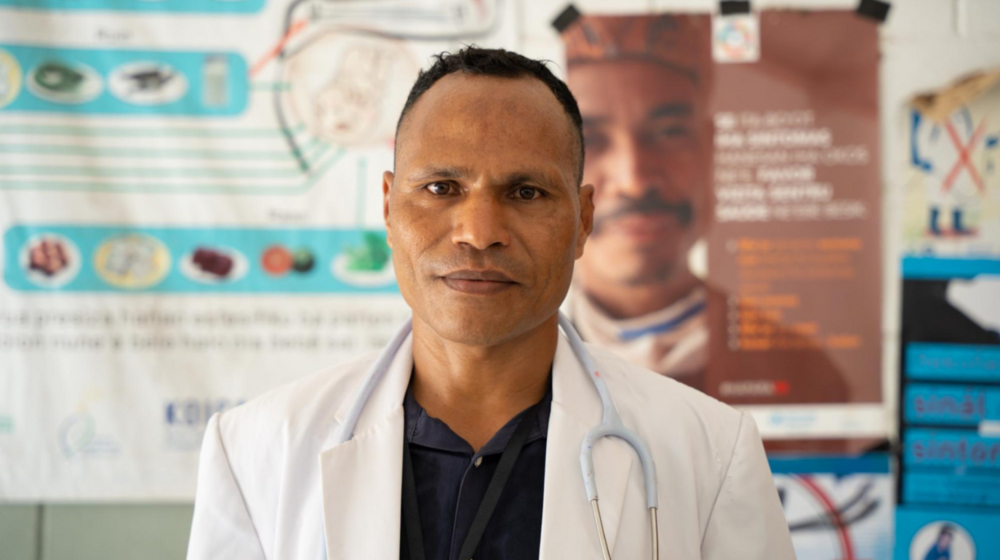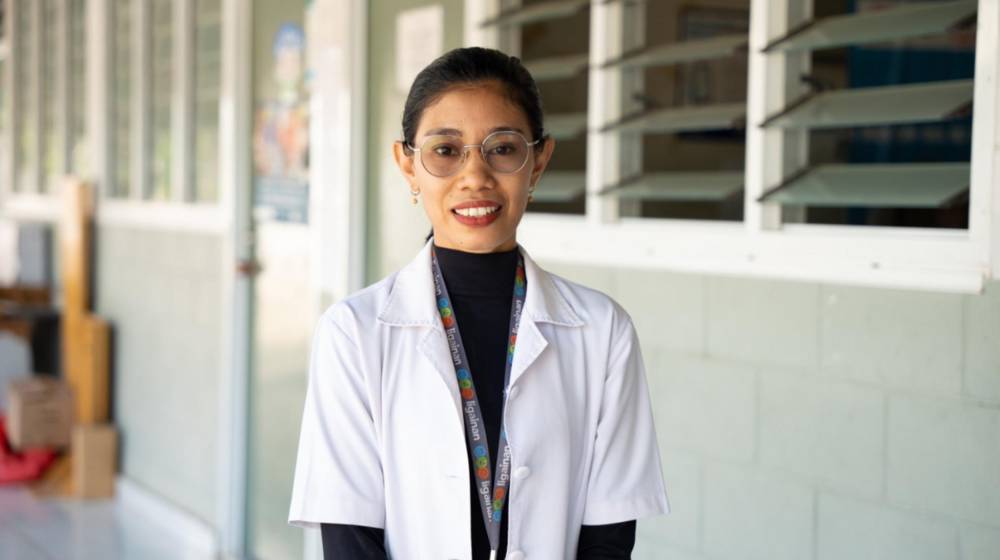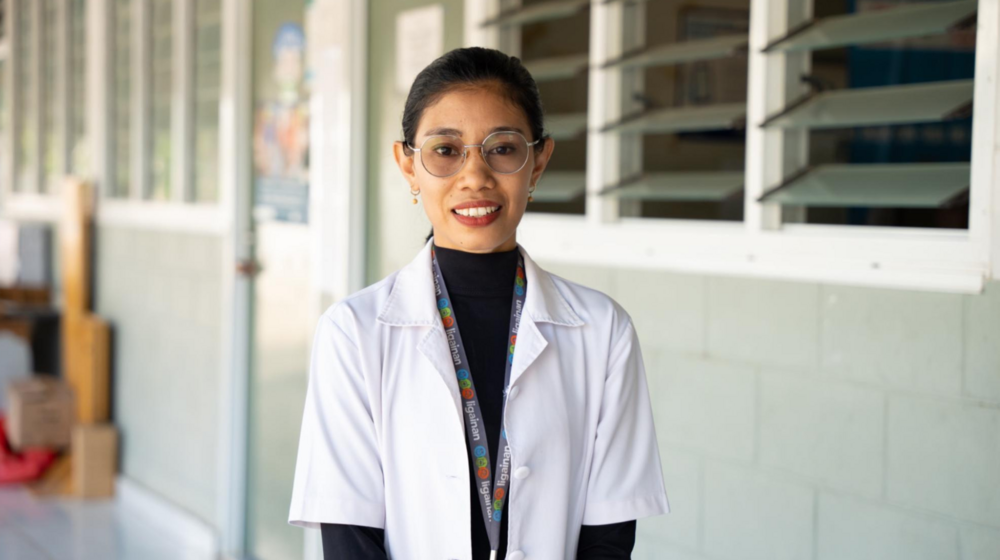Since 2021, UNFPA, with support from Zonta International, has been working to strengthen healthcare responses to gender-based violence in Timor Leste. Health care workers are often first responders to the most severe incidents of gender-based violence, yet many women who attend health clinics for injuries sustained from gender-based violence are hesitant to disclose their experiences.
UNFPA has provided specialized training for health providers to recognise signs of gender-based violence and deliver tailored care that puts the survivor at the centre and can refer survivors to support services. We spoke with practitioners in Timor Leste to better understand how these new approaches have been making a difference in how they support women and girls experiencing violence.
dr. Diego da Costa (CHC Lautém)

Since high-school, Dr Diego da Costa, aspired to be a doctor. After receiving a scholarship to study medicine, he is now serving as general practitioner in his hometown in Timor Leste.
“For me, saving patient and community is like making contribution to the nation,” he says.
Part of that contribution is in providing essential medical treatment for women and girls experiencing violence. In his years of practice, he has seen significant transformation in the community perception of gender-based violence.
“In my observation, the community actually doesn’t tolerate it,” he shares. “In the past, many survivors did not come to seek help in the health facilities and they didn’t go to report to the police. Now, many people are aware of how to get help from police and health facilities.”
For Dr Diego, it is the survivors who have driven that change.
“Survivors who were helped by health personnel have played a vital role in spreading information to other women in the community,” he says. “Through the referrals, they have encouraged other survivors to seek help. I believe this has contributed to a positive change and greater awareness. There is definitely progress.”
dr. Gaudencia Fernandinha Borges (CHC Liquiçá Villa)

Dr. Gaudencia has been working for more than a decade as a general practitioner in Timor Leste. In her role as a forensic examiner with the Community Health Centre, she documents critical evidence in cases of gender-based violence, working with police and other partners to support women and girls who experience violence.
“I have a deep passion for helping people. I saw that there were very few healthcare professionals and doctors in Timor-Leste, so I chose to build my career in medicine to be able to assist those in need.”
“From the training with UNFPA, I now understand that patients having experienced domestic violence require special care and attention,” shares Dr Gaudencia. “In the Safe Space, we document their information, provide counseling, and refer them to the appropriate services.”
“This approach is completely different from how we handled cases before.”
dr. Celestina de Fatima Castro (CHC Liquiçá Villa)

For Dr Celestina, a career in medicine was not something she thought she would achieve. A scholarship and many years of study later, she has developed a deep love of the profession and now manages a municipal Safe Space in Timor Leste.
“I’m grateful that we have a Safe Space where we can provide gender-based violence survivors with information, counseling, and foster positive relationships with them,” says Dr Celestina.
“It helps survivors feel confident in receiving care and support for their healing.” A safe space for women and girls is a private room at a health facility, creating a supportive environment where they are protected from harm and empowered through healthcare, counseling, and opportunities for growth.
“Before the training, we treated survivors in the emergency room just like any other patients, without separating survivors of gender-based violence from others,” shares Dr Celestina. “After completing the training, I now have a clearer understanding of how to handle gender-based violence cases. In my practice, maintaining confidentiality is crucial during the counseling process, and I follow the standard operating procedures to ensure this.”
“We are also in the process of providing outreach in the suco or village level,” she says. “The goal is to let them know that there is a safe Space in Liquica that handles domestic violence cases.”
“My hope for Timor-Leste over the next half-decade is that through accelerated support through f shelters, increased health facilities, professional training for staff, and effective coordination, we can anticipate a substantial reduction in cases of gender based violence.”
Luzi dos Santos Passus (CHC Lautém)

Luzi dos Santos Passus dreamed of becoming a midwife when she was in secondary school.
“I used to see the midwives saving mothers and babies in the health center then I started thinking of becoming a midwife,” she says. I chose to become a midwife to help my fellow women, and I am ready to help those who need it.”
Now working as a midwife in Timor Leste’s Lautem municipality, Luzi supports mothers who have experienced intimate partner violence to connect them with multi-sectoral GBV response services , such as counseling and police services.
“I attended the UNFPA gender-based violence training in Los Palos,” says Luzi. “I now know that the health providers are included in referral networks and we need to coordinate with other service providers , like VPU Police, OPL organization, Child Protection Organization, including PRADET and safe space.”
Like her fellow health workers, Luzi envisions a future free from gender-based violence. She suggests a combination of institutional strengthening and grassroots outreach.
“We need to strengthen coordination links within the referrals,” shares Luzi. “Ultimately we should disseminate information throughout our communities about gender-based violence.”
What message would Luzi like to disseminate?
“I want to encourage all my fellow women who may be experiencing gender-based violence: please don’t be afraid to reach out. We are here for you at the health center, ready to provide the support and care you need.”



